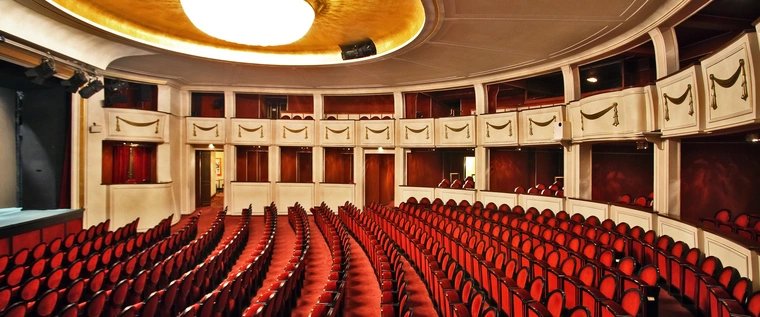
For the nameless narrator from Dostoyevsky's cellar hole, the hallowed modern age with its great promises of democracy, emancipation and progress means one thing above all: suffering. The boundless life in the big city, the claim to freedom, and the preciousness of one's own life plan - namely, to be able to live exactly as one wants to - seem, in the end, to be very much at odds with one's own world of experience. Instead, he remains isolated, alone, and thrown back on himself, aggrieved. But is there such a thing as "free will"?
Is it even possible to "live according to one's own imagination"? Or is that in the end only something for the "happy few" in a world that has long since been calculated and sold? The gulf between a society's moral claim and the deep grievance of those who do not feel considered by it leads straight into an ominous sensibility that can seemingly be met only with difficulty other than anger, indignation and self-abasement. In a reckoning and approach alike that is self-empowerment and profession of faith, Dostoevsky's protagonist attempts to find himself and back to the community.
Considered one of the first existentialist writings, Fyodor Dostoyevsky's novel Notes from the Cellar Hole was published in 1864 and found admiration from Friedrich Nietzsche as well as Albert Camus. In his "psychological study," the author, who had just been released from prison in Siberia, plagued by epileptic seizures and heavily indebted to his gambling addiction, explores no lesser questions than those concerning human freedom and the search for community.
(Program in German)
Additional information
We do apologize that the following information is currently only available in German.
Participating artists
von Fjodor M. Dostojewski (Autor/in)
Oliver Kraushaar
Max Lindemann
Katja Pech
Anneke Goertz
Johannes Nölting
Dates
September 2025
| Mo | Tu | We | Th | Fr | Sa | Su |
|---|---|---|---|---|---|---|
1
|
2
|
3
|
4
|
5
|
6
|
7
|
8
|
9
|
10
|
11
|
12
|
13
|
14
|
15
|
16
|
17
|
18
|
19
|
20
|
21
|
22
|
23
|
24
|
25
|
26
|
27
|
28
|
29
|
30
|



